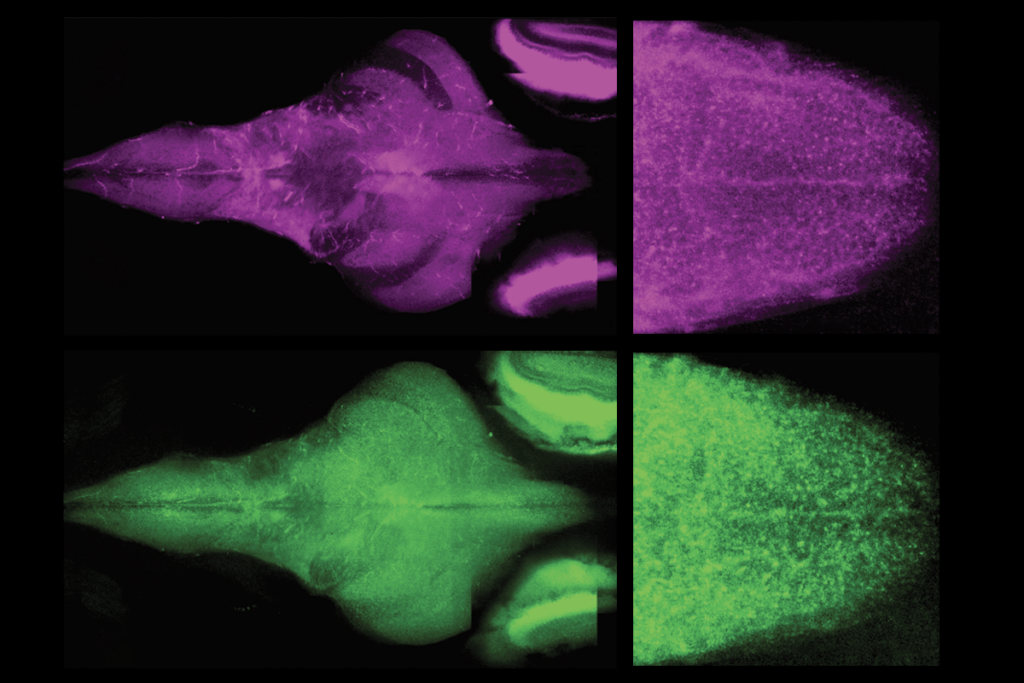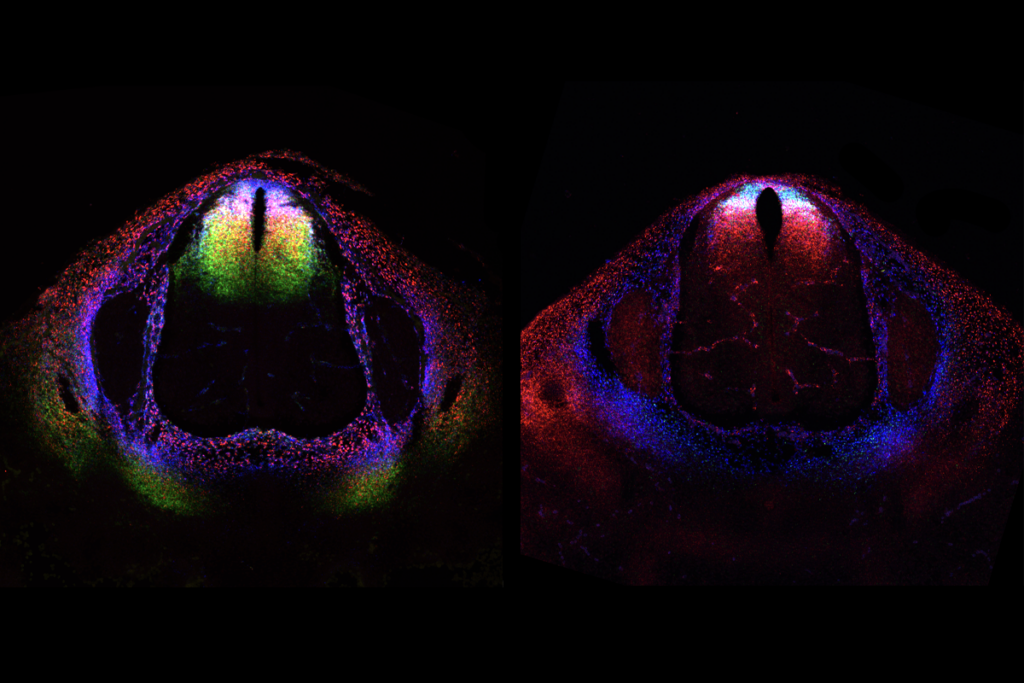Lithium’s effect on fragile X mice
Lithium treatment reverses some of the behavioral and brain-cell abnormalities in mouse models of fragile X syndrome ― an inherited form of mental retardation that includes learning deficits, aggressiveness, and social withdrawal ― according to research presented today at the Society for Neuroscience meeting.
-
Dense dendrites: Lithium decreases the length and density of dendritic spines in a mouse model of fragile X.
Lithium treatment reverses some of the behavioral and brain-cell abnormalities in mouse models of fragile X syndrome ― an inherited form of mental retardation that includes learning deficits, aggressiveness, and social withdrawal ― according to research presented today at the Society for Neuroscience meeting.
Doctors have for about 50 years prescribed lithium salts for mood problems, such as bipolar disorder. Three years ago, scientists found that lithium reduces memory deficits and repairs neuronal defects in a Drosophila model of fragile X.
In August, an open-label clinical trial of two months of lithium treatment of 15 people with fragile X found that the chemical alleviates irritability, inappropriate speech and aggressive behavior.
The results presented at the conference are the first to investigate the effect on brain cells of mouse models of the disorder, according to Zhong-Hua Liu, a postdoctoral fellow at the National Institute of Mental Health who presented the data.
Lead investigator Carolyn Beebe Smith and her team studied about two dozen mice that were missing the FMR1 gene, lack of which causes fragile X. As in the results of the human trial, mice given dietary lithium treatment are less hyperactive than untreated controls, the researchers found. The treated mice also show robust improvement in the ‘passive avoidance testʼ, an electric shock paradigm that tests memory function. This kind of cognitive improvement was not seen in the human clinical trial.
Examining the prefrontal cortex tissue of the mice at 12 weeks old, the researchers found that treatment decreases the length and density of dendritic spines ― the neuronal extensions that receive signals from other neurons ― so that they look similar to healthy mice.
This neurobiology is an important clue to finding out whether lithium can improve not only the behavioral, but also the learning deficits in people with fragile X syndrome, says Randi Hagerman, of the University of California, Davis, M.I.N.D. Institute, who was not involved with either the clinical trial or the newly presented work.
“This could be big news,” Hagerman says. “This is really important evidence that lithium is improving synaptic connections in mice, which makes it much more likely that it might dramatically help cognition in humans.”
For all reports from the Society for Neuroscience annual meeting, click here.
Recommended reading

Largest leucovorin-autism trial retracted

Pangenomic approaches to the genetics of autism, and more

Latest iteration of U.S. federal autism committee comes under fire
Explore more from The Transmitter

Neuro’s ark: Understanding fast foraging with star-nosed moles

NIH scraps policy that classified basic research in people as clinical trials
